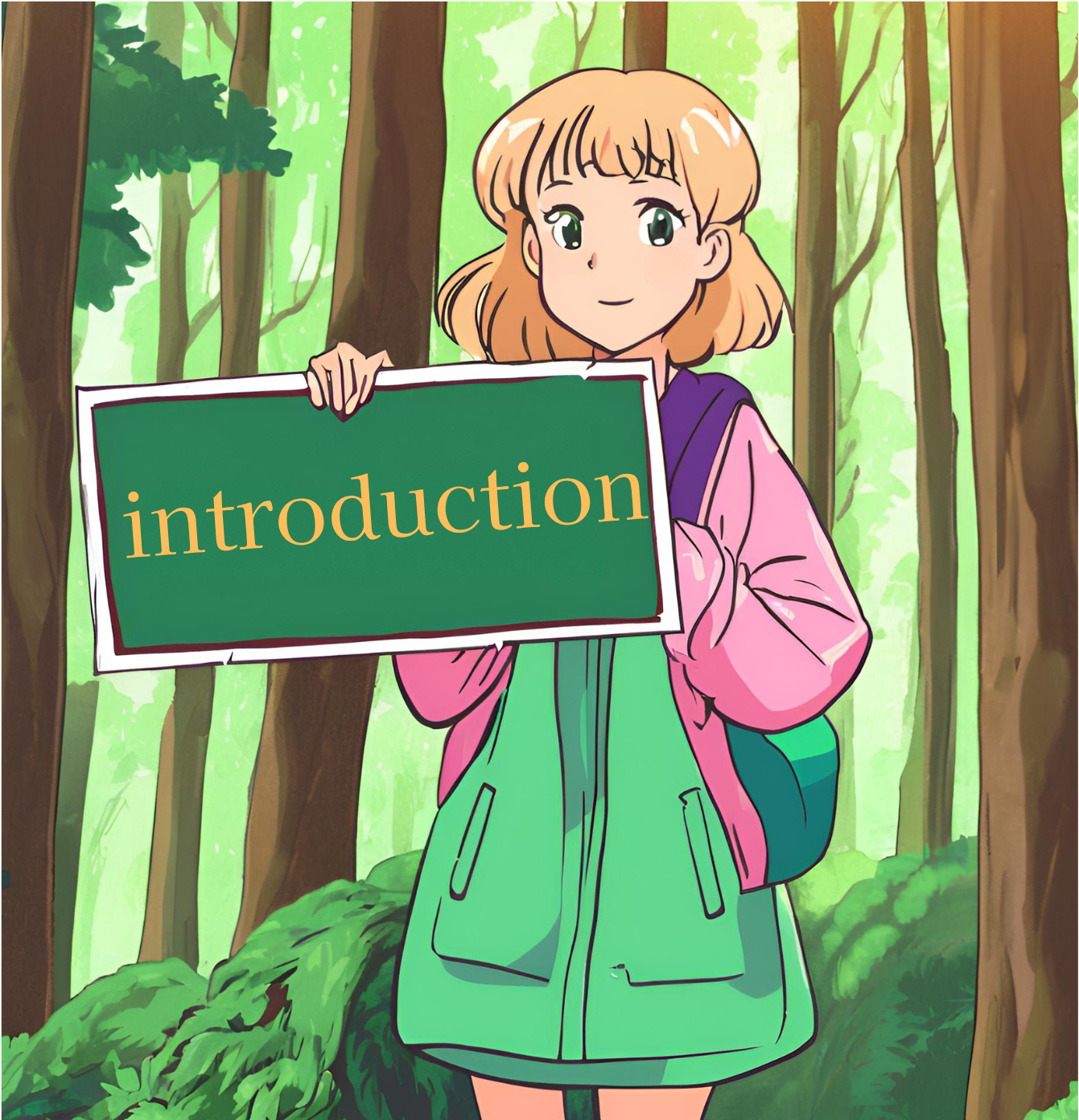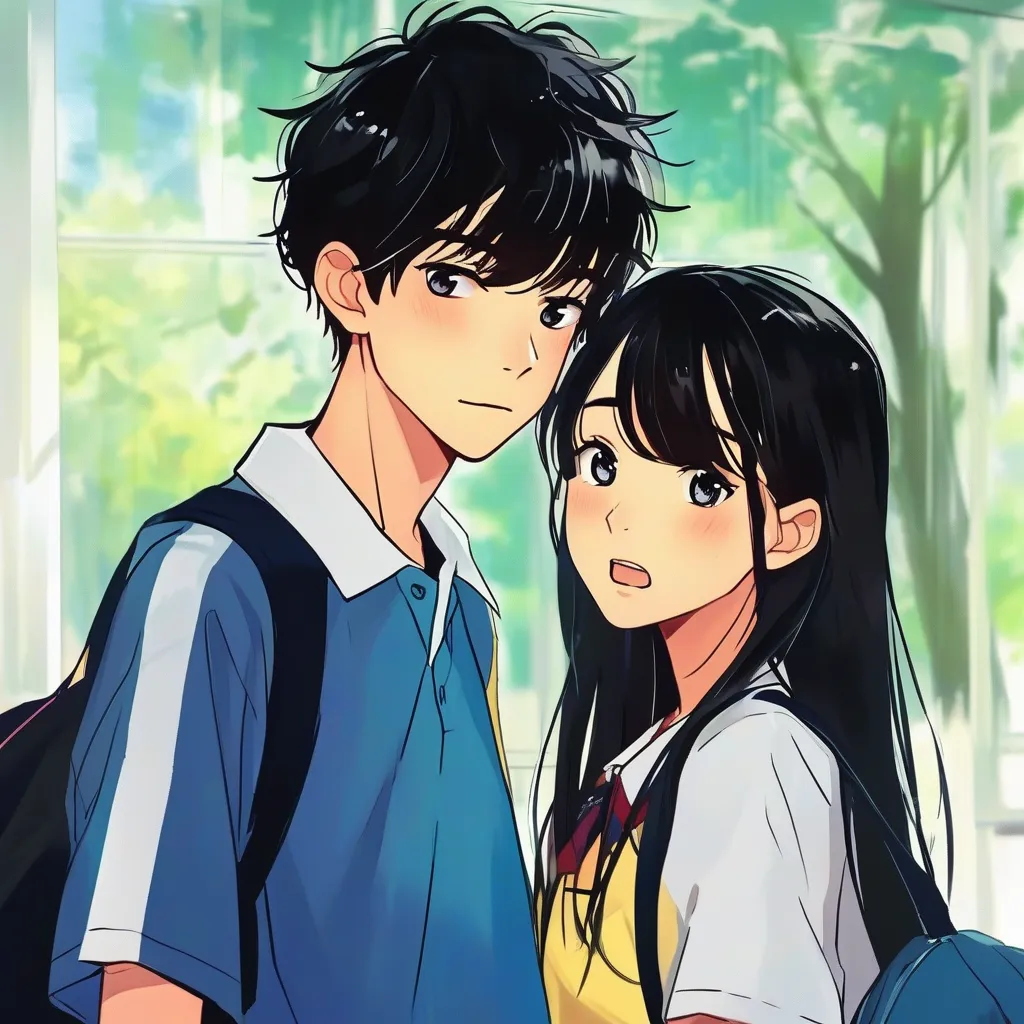Article Structure:
- Introduction to "My Sister, My Writer"
- Overview of the anime’s premise and setting
- Brief introduction to the main storyline and its comedic elements
- Mention of the series' origins and its adaptation from the light novel by Seiji Ebisu
- Main Plot and Story Arcs
- Detailed summary of major plot points and story arcs
- Description of key story arcs such as the protagonist’s unexpected success as a light novel author, and the ensuing complications
- Key conflicts and challenges faced by the characters and how they navigate through them
- Character Profiles and Development
- In-depth descriptions of key characters such as Yuu Nagami, Suzuka Nagami, and their friends
- Exploration of their backgrounds, motivations, and relationships
- Analysis of character growth and evolution throughout the series
- Themes and Humor in "My Sister, My Writer"
- Discussion of major themes such as sibling relationships, identity, and the challenges of the light novel industry
- Examination of how humor is portrayed through character interactions and various situations
- Analysis of the symbolism and comedic elements used to enhance storytelling
- Reception and Cultural Impact
- Summary of the series' reception by audiences and critics
- Discussion on the cultural impact of "My Sister, My Writer" and its contribution to the comedy and slice-of-life genres
- Speculation on potential future seasons or adaptations based on current fan expectations and the storyline's progression
Contents
Introduction to "My Sister, My Writer"

"My Sister, My Writer" is an anime that combines humor, romance, and the unique dynamics of sibling relationships. The story is set in a typical high school environment, where the ordinary lives of the characters are turned upside down by unexpected and hilarious situations.
Overview of the Anime’s Premise and Setting
The series follows the lives of Suzuka Nagami and her older brother, Yuu Nagami. Suzuka is a talented high school student who secretly writes a light novel under the pen name "Chikai Towano." Her novel, featuring a romantic relationship between a brother and sister, wins a prestigious award. However, due to her shyness and fear of being judged, she convinces her brother Yuu to pose as the author. This decision leads to a series of comedic and awkward situations as Yuu navigates the complexities of pretending to be a famous light novel author while managing his own school life and budding romantic feelings.
Brief Introduction to the Main Storyline and Its Comedic Elements
The main storyline revolves around the humorous and often chaotic situations that arise from the siblings' secret. As Yuu takes on the public persona of "Chikai Towano," he must deal with the expectations of fans, interactions with other authors, and the advances of various girls who admire his supposed talent. The comedic elements are driven by the misunderstandings and dilemmas Yuu faces, as well as the exaggerated reactions of the characters around him. The show plays on the tropes of romantic comedy, adding a layer of sibling rivalry and affection that keeps the audience entertained.
Mention of the Series' Origins and Its Adaptation from the Light Novel by Seiji Ebisu
"My Sister, My Writer" is based on the light novel series written by Seiji Ebisu, which gained popularity for its quirky plot and engaging characters. The anime adaptation stays true to the original material, bringing the humorous and heartwarming moments to life with vibrant animation and expressive voice acting. The series explores themes of identity, ambition, and the complexities of sibling relationships, all wrapped in a comedic package that appeals to fans of the romantic comedy genre.
Throughout the series, viewers are treated to a mix of heartfelt moments and laugh-out-loud scenes, making "My Sister, My Writer" a delightful watch. The anime's ability to balance humor with genuine emotional beats ensures that it resonates with a wide audience, from those who enjoy lighthearted comedy to those who appreciate the intricacies of sibling dynamics.
In conclusion, "My Sister, My Writer" offers a refreshing take on the romantic comedy genre, enriched by its unique premise and well-crafted characters. Whether you're a fan of the light novel or new to the series, this anime provides an enjoyable and engaging experience that is sure to leave you smiling. Dive into the world of Suzuka and Yuu Nagami, and discover the charm and humor that "My Sister, My Writer" has to offer.
Character Profiles and Development in "My Sister, My Writer"

"My Sister, My Writer" introduces us to a charming ensemble of characters whose backgrounds, motivations, and relationships weave a captivating narrative. Central to the story are Yuu Nagami, Suzuka Nagami, and their circle of friends, each bringing a unique flavor to the anime.
Yuu Nagami: Yuu Nagami is an aspiring light novel author with dreams of literary success. His journey begins with a shocking revelation that his sister, Suzuka, has written a light novel under his name. Yuu's motivations are driven by a mix of ambition and a protective instinct towards Suzuka. Throughout the series, Yuu's character is defined by his supportive nature and his struggle to balance his own aspirations with Suzuka's unexpected talent. His interactions with Suzuka and their friends reveal a caring and determined personality. Yuu's growth is marked by his increasing acceptance of his sister's talents and his evolving understanding of the complexities of the publishing world.
Suzuka Nagami: Suzuka Nagami is a brilliant yet shy middle school student who writes an award-winning light novel under her brother's name. Her background is rooted in a deep admiration for her brother, which fuels her writing. Suzuka's motivations are driven by her desire to be close to Yuu and to express her feelings through her stories. Their relationship evolves from sibling camaraderie to a more intricate and emotionally charged connection. As the series progresses, Suzuka's character grows through her interactions with Yuu and their friends, revealing her inner strength and creative genius. Despite her shy demeanor, Suzuka's determination to support Yuu and her passion for writing shine through, showcasing her resilience and emotional depth.
Mai Himuro: Mai Himuro is Yuu's childhood friend and a talented illustrator. Her background includes a long-standing friendship with Yuu, and her motivations are fueled by her unspoken feelings for him. Mai's interactions with Yuu and Suzuka reveal a protective and sometimes jealous side, adding complexity to her character. Her development throughout the series is marked by her efforts to balance her professional ambitions with her personal feelings. Mai's growth is evident in her evolving relationship with Suzuka, as she learns to support and encourage Suzuka's talents while grappling with her own emotions.
Ahegao W Peace Sensei: Ahegao W Peace Sensei, whose real name is Chikai Towano, is a famous and eccentric light novel author. Her background is steeped in the literary world, and her motivations are driven by her passion for writing and mentoring new talent. Her interactions with Yuu and Suzuka reveal a quirky yet insightful personality. Chikai's character development is highlighted by her role as a mentor to Yuu and Suzuka, guiding them through the challenges of the publishing industry. Her growth is marked by her ability to balance her eccentricities with genuine care and support for her protégés.
Throughout "My Sister, My Writer," these characters face significant conflicts and challenges that shape their growth and relationships. Yuu's struggle to support Suzuka's writing career while pursuing his own dreams creates a dynamic interplay between ambition and family loyalty. Suzuka's determination to prove herself as a writer and her deep bond with Yuu add emotional depth to the narrative. Mai's unspoken feelings for Yuu and her role as an illustrator create tension and complexity within their circle of friends. Chikai's mentorship and eccentricities provide both comic relief and valuable guidance.
In summary, "My Sister, My Writer" offers a rich tapestry of character development, with Yuu, Suzuka, Mai, and Chikai at its core. Their backgrounds, motivations, and relationships drive the story forward, creating a compelling blend of ambition, sibling dynamics, and the challenges of the literary world. As they navigate through personal and collective challenges, viewers witness their growth and the profound impact of their interconnected fates.
Themes and Humor in "My Sister, My Writer"

"My Sister, My Writer" dives deep into several prominent themes, combining humor and heartfelt moments to create a captivating narrative. This anime explores sibling relationships, identity, and the challenges of the light novel industry, all while delivering a blend of comedic and touching interactions.
Sibling Relationships: At the heart of "My Sister, My Writer" is the complex relationship between the protagonist, Yuu Nagami, and his sister, Suzuka Nagami. Their bond is tested and strengthened as they navigate the world of light novels. Suzuka, a talented writer, wins a prestigious award under a pseudonym, leading to Yuu pretending to be the author to protect her identity. This dynamic creates a foundation for exploring themes of loyalty, support, and the intricacies of familial love. The humor often arises from their interactions and the misunderstandings that occur as they work together to maintain their secret.
Identity: Identity is a crucial theme in the series, particularly focusing on Suzuka's struggle to balance her secret life as a light novel author with her public persona as a high school student. The duality of her existence creates tension and humor, as Suzuka must rely on her brother to navigate the challenges of her double life. Yuu's own identity crisis unfolds as he grapples with his feelings of inadequacy and his role in supporting Suzuka's career. The series uses humor to highlight these struggles, often through comedic situations where characters must adapt to rapidly changing circumstances.
Challenges of the Light Novel Industry: The anime provides a satirical look at the light novel industry, showcasing both its allure and its pitfalls. Yuu and Suzuka's journey exposes the pressures and expectations placed on authors, especially those who achieve sudden fame. The humor is derived from exaggerated portrayals of industry insiders, from eccentric editors to overly enthusiastic fans. The series uses these characters to poke fun at the industry's quirks while also addressing serious issues such as plagiarism, writer's block, and the competition between authors.
Portrayal of Humor: Humor in "My Sister, My Writer" is primarily character-driven, relying on witty dialogue and situational comedy. The interactions between Yuu and Suzuka are filled with playful banter and teasing, providing lighthearted moments that balance the more serious themes. The supporting characters, including fellow authors and industry professionals, contribute to the comedic tone with their exaggerated personalities and humorous antics. The anime's ability to blend humor with genuine emotion allows it to explore its themes in a way that is both entertaining and meaningful.
Symbolism and Comedic Elements: The series uses various symbols and comedic elements to enhance its storytelling. Suzuka's pseudonym and the secret of her authorship symbolize the hidden aspects of identity and the masks people wear to protect themselves. The light novel manuscripts and the creative process represent the struggle for self-expression and the pursuit of one's passions. The comedic elements, such as misunderstandings and exaggerated reactions, serve to highlight the characters' vulnerabilities and humanize their experiences. By juxtaposing humor with deeper themes, "My Sister, My Writer" creates a rich narrative that resonates with viewers.
In conclusion, "My Sister, My Writer" skillfully weaves together themes of sibling relationships, identity, and the challenges of the light novel industry, all while maintaining a lighthearted and humorous tone. The series' ability to blend comedy with heartfelt moments makes it a standout in its genre, offering viewers a relatable and entertaining exploration of the complexities of family, identity, and creative pursuits.
Reception and Cultural Impact of "My Sister, My Writer"

"My Sister, My Writer" has garnered a mix of reactions from both audiences and critics since its release. The series, known for its unique blend of comedy and slice-of-life elements, has sparked various discussions within the anime community.
Summary of the Series' Reception by Audiences and Critics
Audiences have had a varied response to "My Sister, My Writer." Many viewers appreciate its humorous take on the romantic comedy genre, often highlighting the quirky character dynamics and the amusing situations the protagonist finds himself in. The comedic elements, combined with moments of genuine emotion, have resonated well with a section of the audience who enjoy light-hearted and entertaining anime. However, the series has also faced criticism for its controversial themes and the perceived lack of depth in its storyline. Critics have pointed out the show's reliance on typical anime tropes and its sometimes inconsistent pacing. Despite these critiques, "My Sister, My Writer" has managed to carve out a dedicated fanbase who enjoy its particular brand of humor and character interactions.
Discussion on the Cultural Impact and Contribution to the Comedy and Slice-of-Life Genres
Culturally, "My Sister, My Writer" has made notable contributions to the comedy and slice-of-life genres. It offers a satirical look at the world of light novel writing and the various absurdities that come with it. The series sheds light on the creative struggles and the sometimes exaggerated scenarios within the industry, providing a fresh perspective that blends real-life issues with comedic exaggeration. The show’s ability to intertwine everyday life with humor has made it a point of reference for discussions on modern anime trends and the evolution of the comedy genre within the medium. Additionally, its focus on sibling relationships, albeit through a somewhat unconventional lens, adds another layer of cultural discourse about familial bonds in anime storytelling.
Speculation on Potential Future Seasons or Adaptations Based on Current Fan Expectations and the Storyline's Progression
The potential for future seasons or adaptations of "My Sister, My Writer" largely hinges on the current fanbase and their expectations. Given the storyline's open-ended progression and the unresolved plot points, there is a strong foundation for continuing the series. Fans have expressed a keen interest in seeing more character development and deeper exploration of the narrative arcs introduced in the initial season. If the creators choose to expand on these elements, there is a significant opportunity to build on the existing fanbase and attract new viewers. The anime's unique blend of comedy and slice-of-life themes, combined with its playful take on the light novel industry, offers ample material for future adaptations.
In conclusion, while "My Sister, My Writer" has faced its share of criticisms, it has also succeeded in creating a niche for itself within the anime community. Its reception by audiences and critics highlights both its strengths and areas for improvement. As the series continues to be a topic of discussion, its cultural impact and potential for future seasons remain significant points of interest for fans and creators alike.





